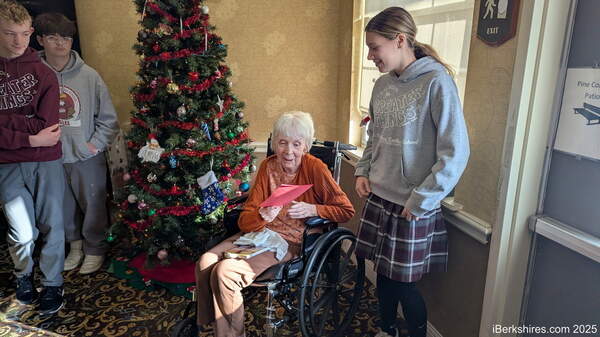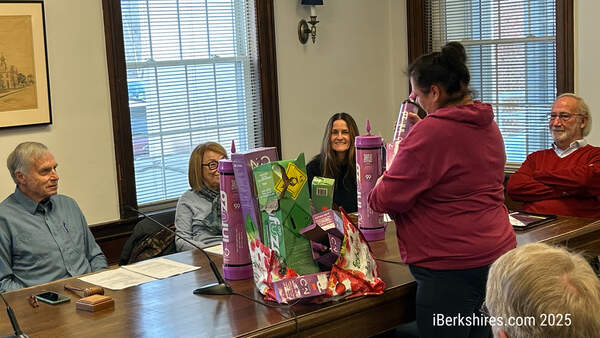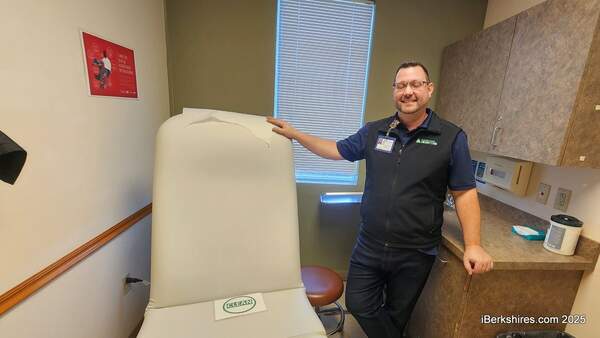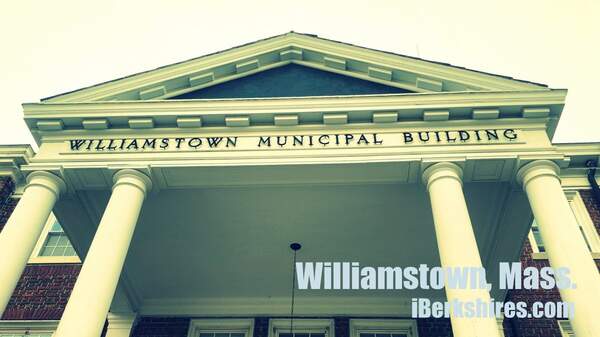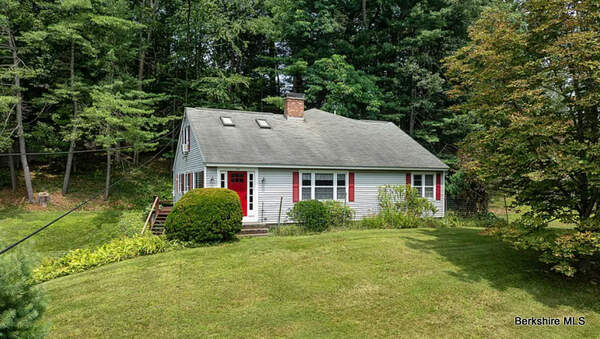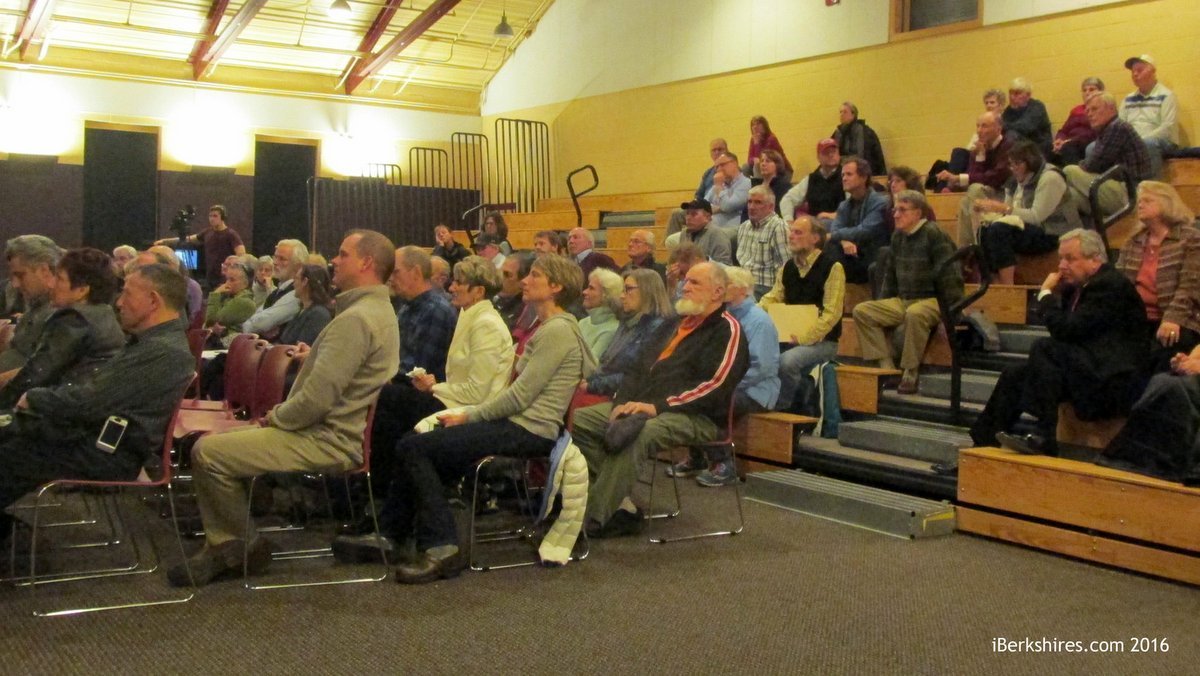
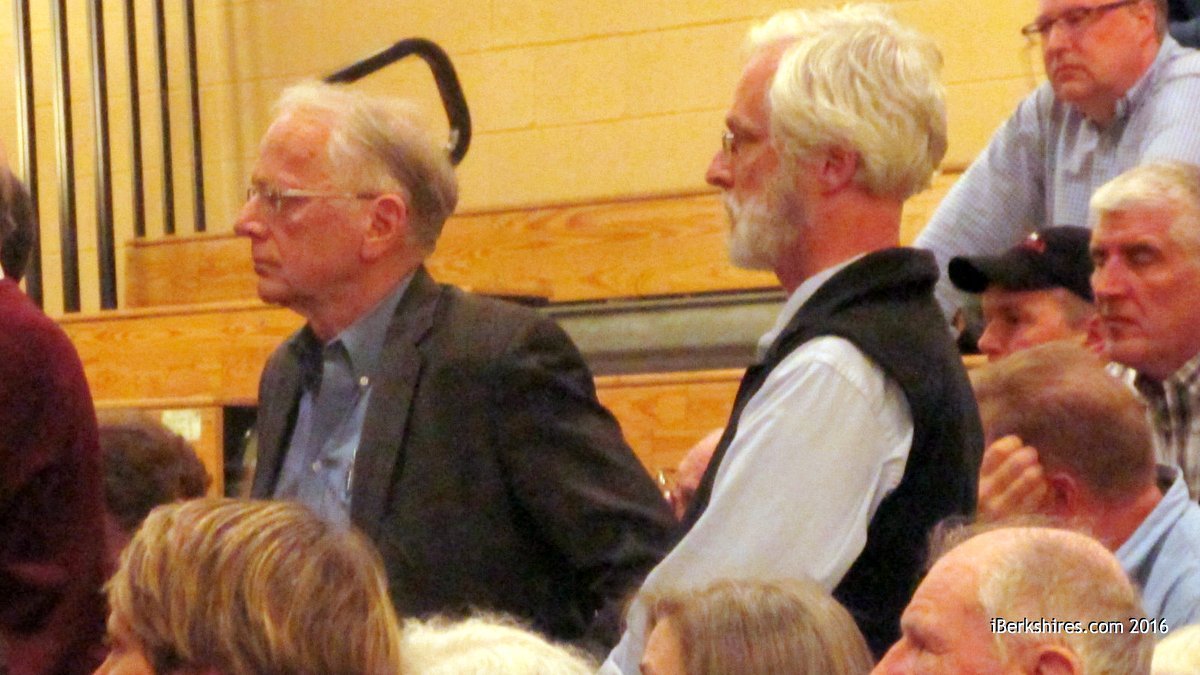
Williamstown Planners Advise Against Waubeeka Zoning Change
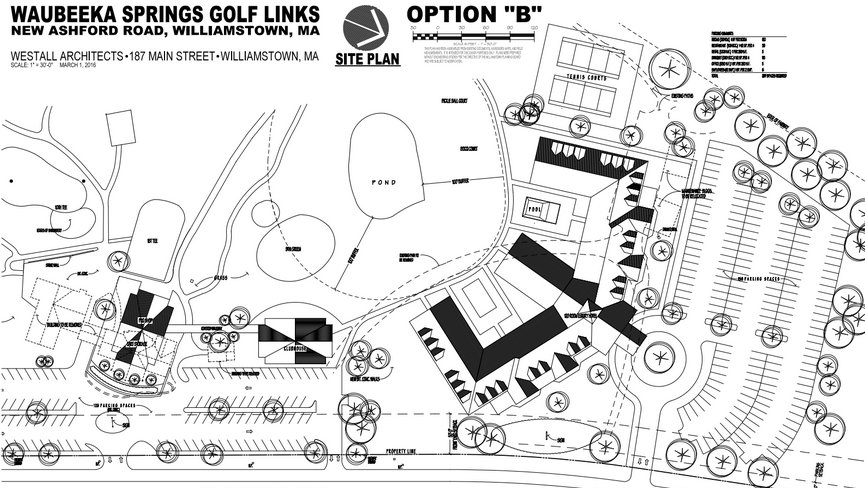
WILLIAMSTOWN, Mass. — After nearly two hours of discussion on Tuesday, the Planning Board ended up in the same place it was six weeks ago: a 3-2 vote against proceeding with a proposed overlay district to allow a hotel at Waubeeka Golf Links.
In January, three members of the board voted to table the issue and stop working on a bylaw to send to town meeting until the owner of the property provided the panel with more information. On Tuesday, that bylaw was back for consideration after a citizen's petition put the issue on May's annual town meeting warrant.
This time, the Planning Board's task was to vote its recommendation to town meeting on the Waubeeka overlay and several other proposed bylaws, including one that would expand the Village Business District to accommodate Williams College's plan to build a new Williams Inn south of Spring Street.
Although the Village Business District bylaw generated some discussion at Tuesday's public hearing, it paled in comparison to the fervor shown on both sides of the Waubeeka issue.
Planning Board Chairwoman Amy Jeschawitz, a supporter of the overlay district, used the setting for Tuesday's hearing to try to frame the debate.
"I attended the [Williamstown Elementary School] budget meeting last week in this very same room," she told a large crowd in the school's auditorium. "The room was full of emotion as this one is tonight. I sat and listened to parents, the School Committee and the superintendent agonize over the budget and how to not reduce a program WES has had for over 25 years yet balance a budget that has been out of line for years.
"How do communities sustain? Mostly by increasing their tax base. Taxes pay for schools, roads, parks, water and sewer, etc. They pay for what communities need and want. Our taxes in Williamstown have stayed relatively flat for years … minimal growth while the world around us continues to become more expensive. We need to face reality. Our taxes are going to increase. We have a high school to pay for … among other things. We have hard choices ahead of us all."
Waubeeka owner Mike Deep has made clear on several occasions that his golf course is losing money — just as it did under the previous owner, who sold it to Deep for a rock-bottom price two years ago. Deep has told the board that he thinks a steady revenue stream from a hotel and banquet hall could maintain Waubeeka as a community resource and a business on the tax roll.
In January — after five months of meetings on the subject — the Planning Board voted to stop trying to develop a bylaw that would make that hotel a possibility. It said Deep needed to provide schematic designs, a marketing study and the name of the partner he would bring in to build and operate the hotel.
Last week, Deep provided two of the three.
On Tuesday, he promised to issue a public request for proposals to seek the partner but not until after town meeting if the bylaw passes.
"On May 20, we send out an RFP because now every developer knows they can do something," Deep said. "The RFP doesn't go out until the zoning change happens."
Planning Board member Ann McCallum shot back, "It can go out whenever you want," implying that Deep should try to attract partners now, before the bylaw gains a two-thirds "super majority" at town meeting.
Deep has maintained from Day 1 that it is too early to ask a developer to commit to the project.
"Right now, we do not have the possibility of a development," Deep's attorney, Stan Parese, told the board on Tuesday. "It is impossible right now to build this in Williamstown.
"You're not going to get developers spending their time and what will be many hundreds of thousands of dollars in soft costs for the privilege of the Town of Williamstown saying, 'Thank you very much, we will continue to talk to you for a while.'
"There has to be a regulatory path."
As for the schematics and the marketing study commissioned by Deep, McCallum called the $25,000 he has spent out of pocket on the proposal "a good start."
Parese for months has been telling the board that it cannot hold private landowners to the same standard the town holds its largest developer, Williams College.
He repeated the point again on Tuesday.
"Williams College is wonderful," he said. "Everybody in town can't work for Williams College. There needs to be a Williamstown beyond Williams College.
"Williams College, as a practical matter, has unlimited resources in this small marketplace. Williams College has an infinite time horizon. You can ask Williams College to go back to the drawing board on something for years. Private businesses can't do that.
"Williams College can't go anywhere. We're all lucky for that. Private, for-profit investment that gives you tax base can go anywhere. We love Williamstown. We think it's great. If we make it prohibitively difficult to invest in this community, I don't know how that investment is going to happen."
The main sticking point on Tuesday night was the idea that the bylaw as written would allow up to 40 acres of the approximately 200-acre Waubeeka property to be developed.
The bylaw as drafted calls for at least 80 percent of the property to remain in open space if the overlay district is utilized — i.e. assuming Deep finds a partner and clears several layers of local regulatory review.
Deep's own schematic design depicts a development that would need far less than that to accommodate a potential hotel's building and parking, leading many at Tuesday's meeting to question why he needs so much space.
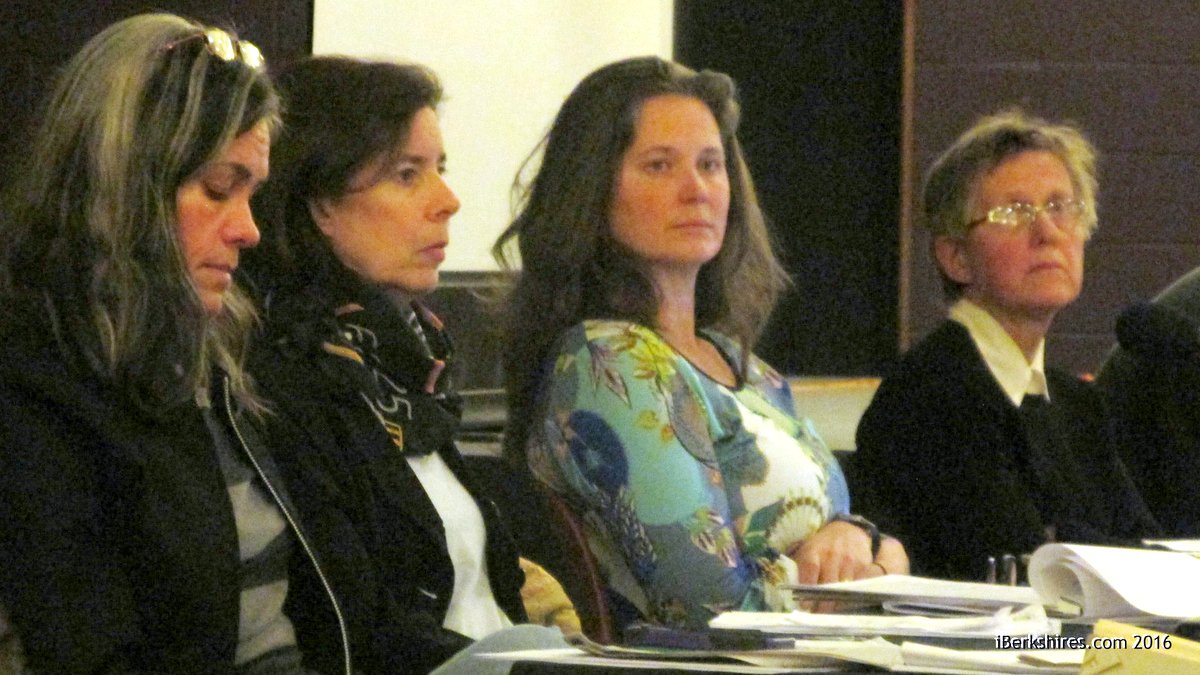
Attorney — and Waubeeka neighbor — Sherwood Guernsey said he might support a small inn on the site but was troubled by the size of a development the bylaw might allow.
"The bylaw does provide up to 40 acres of development and it goes all along Route 7 — 2,200 feet of road frontage," Guernsey said. "That's seven football fields. That begins to say, 'Is this really a country inn, a boutique inn?' … What are we getting? A small country inn or a resort project?"
Planning Board member Sarah Gardner agreed that the bylaw would allow more development than she is comfortable with.
"Six-point-five acres would be great with me, but 40 acres is two of Jiminy Peak's Vacation Villages," she said. "It's huge. The 40 acres is going to hurt you at town meeting.
"I've always said I wanted a site plan so we could craft a bylaw that was as much as you needed."
Selectman Andy Hogeland, who was elected promising to work on economic development in town and served on the recently completed yearlong Economic Development Committee, joined Guernsey in implying a bait and switch on the part of Deep.
"When Mike Deep approached the Planning Board, he had almost universal support for the country inn he proposed," said Hogeland, who lives near the Waubeeka property. "We're not here for Mike's vision. We're here for a piece of paper, which is the bylaw. I wish the petitioners had given us a bylaw more tailored to Mike's vision."
Parese bristled at the notion that Deep ever talked about limiting the size of the inn.
"Mike called it a country inn in September," Parese said. "Mike never stood up and said it was going to be a 'small country inn.' You can watch the tape."
In September, Parese told the Planning Board: "A developer will have a very clear and strong opinion about what is the right number [of rooms]. At this early stage, I wouldn't pretend to know what that number is but it's not a huge number. There's not a 500-room hotel on the horizon."
Parese said that without engineering work on the site, it is too soon to lock in a specific building envelope as some have suggested.
"You put a shovel in the ground and hit a spring, you have to make a new plan," he said.
The Planning Board explicitly said it did not require engineering studies as part of the "additional information" it wanted when it tabled the bylaw in January.
Parese also reminded the board that the 80 percent open space requirement is far in excess of the 50 percent required by the property's existing zoning designation, Rural Residence-2.
And in response to a question from Henderson Road resident Ariel Sutain, a supporter of the overlay district, Parese said that under the provisions of the commonwealth's Chapter 40B, up to 120 units of subsidized housing could be built on the site.
Deep offered on Tuesday to bargain with the Planning Board, telling the panel that in exchange for a 5-0 vote recommending passage of the bylaw, he would accept a friendly amendment on the floor of town meeting to decrease the amount of developable land in the overlay district.
"I would say you'd have an easier time … if the number is less than 10 [acres]," McCallum said.
But the board showed no interest in negotiating a more palatable number to bring to the floor of town meeting.
Several people, including at least one Planning Board member, objected to language in the bylaw that would open the door to timeshares.
"Timeshares can languish," board member Elizabeth McGowan said. "They can lie empty."
Selectman Hugh Daley said timeshares are not something to be feared.
"If he were to sell [units] as timeshares, it would mean there wouldn't be permanent debt on the property, which means it would be much more likely to survive over time," Daley said. "Timeshare is a funding mechanism for the hotel industry."
Daley also joined Jeschawitz in asking the full Planning Board to not stand in the way of private investment that could save a 50-year-old business in the town, a point echoed throughout Tuesday's meeting.
"You have an investor wanting to come to town and build a country club," Blair Road resident Eric Reinhard said. "It's not a Walmart. It's not a nuclear testing facility."
Planning Board member Chris Winters, who voted with Jeschawitz in the minority on Jan. 26 and again Tuesday night, said the board's refusal to back the bylaw has broader implications.
"It is crazy that this board would substitute its amateur opinion about the likelihood of a viable business for that of the entrepreneur willing to put his time and money and reputation behind it," Winters said, referring to the Jan. 26 request for a marketing study. "It sends a chilling message not only to this business owner but every potential business owner. That's a terrible chilling message that this board is sending tonight."
"A chilling message is different than careful consideration," McGowan retorted.
Jeschawitz said the town should not fall into the trap of opposing any new development because some residents do not want it in their back yards.
"We should not be NIMBYs," she said in her opening statement. "If you want to live on an island, then go find one … run your own school, your own police and fire, haul water, etc. You run the show.
"Otherwise, we all need to make sacrifices. It has become clear to me over the past few months that there is an increasing agenda being put forth by members of both the select board and members of the Planning Board. It is politics, I understand that … although I do not agree.
"Our commitments as board members are to consider the community as a whole — not to promote individual agendas. To borrow words from a friend of mine, 'I think we are better than that.' "
Tags: citizens petition, motels, hotels, overlay districts, Planning Board, town meeting 2016, waubeeka,

